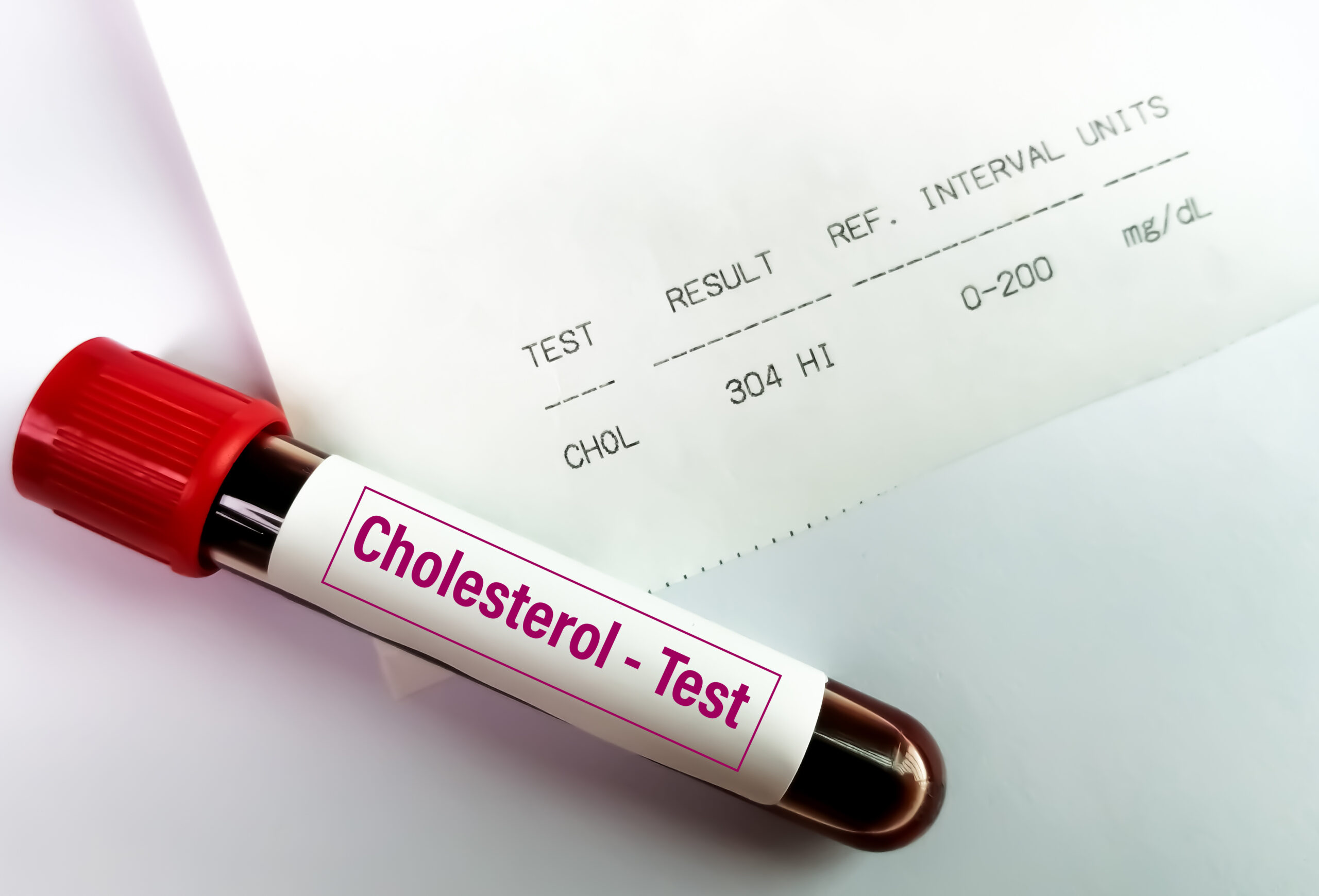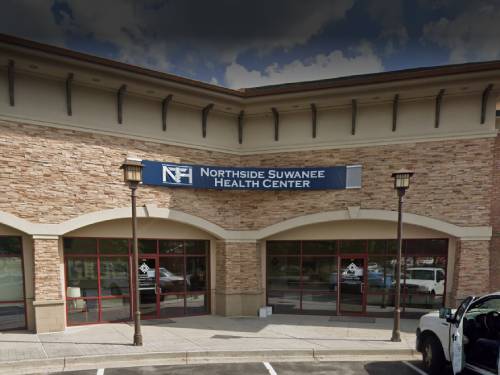THE DANGERS OF HIGH CHOLESTEROL
Lorem ipsum dolor sit amet, consectetur adipiscing elit.

THE DANGERS OF HIGH CHOLESTEROL
High cholesterol can be a silent threat, damaging your arteries and increasing your risk of serious cardiovascular problems. If you have a family history of heart disease or haven’t had your cholesterol levels checked recently, it’s crucial to consider visiting our Atlanta heart doctors for a cholesterol check.
High cholesterol is like a stealthy intruder in your bloodstream. It can build up in your arteries, forming plaque that narrows and hardens these vital pathways. Think of your arteries as highways for your blood; when they become clogged with cholesterol, it’s like a traffic jam in your cardiovascular system.
You might wonder why you should worry if you feel fine. High cholesterol often has no symptoms until it causes a significant problem. This is why it’s usually called a “silent killer.” The dangers of untreated high cholesterol include:
- Heart Attack: Plaque buildup can rupture, forming a clot that blocks blood flow to your heart.
- Stroke: Similarly, a clot can block blood flow to your brain, causing a stroke.
- Peripheral Artery Disease: Narrowed arteries can reduce blood flow to your limbs, causing pain and increasing infection risk.
- Angina: Reduced blood flow to your heart can cause chest pain or discomfort.
- Chronic Kidney Disease: High cholesterol can damage blood vessels in your kidneys, affecting their function.
- Atherosclerosis: This general hardening of the arteries can affect blood flow.
By visiting our Atlanta heart doctors, you’re taking a proactive step towards protecting your cardiovascular health. Our cardiologists are experts in detecting and managing high cholesterol. They can perform comprehensive blood tests to assess cholesterol levels and cardiovascular risk.
During your visit, our doctors will explain your cholesterol numbers and what they mean for your health. They’ll work with you to develop a management plan, which might involve lifestyle changes, dietary modifications, or medication if necessary. They can also discuss advanced testing options to get a more detailed picture of your cardiovascular health.
Schedule an appointment with our Atlanta heart doctors today to get your cholesterol levels checked and receive expert guidance on managing them. While high cholesterol can be dangerous, it’s also highly treatable. With proper management, you can significantly reduce your risk of serious cardiovascular problems.
Read on about the dangers of high cholesterol and how CVG provides comprehensive cardiac care.
High Cholesterol Facts and Treatment
High cholesterol is a common health problem caused by having too much cholesterol in the blood. Cholesterol is a type of fat produced by the liver and found in certain foods.
There are two main types of cholesterol: low-density lipoprotein (LDL) cholesterol, which is often referred to as “bad” cholesterol because it can contribute to the build-up of plaque in the arteries, and high-density lipoprotein (HDL) cholesterol, which is often referred to as “good” cholesterol because it helps to remove excess cholesterol from the body.
Elevated cholesterol levels can increase the risk of heart disease and stroke, which are two of the leading causes of death worldwide. High cholesterol can also lead to other health problems, such as blocked arteries, angina (chest pain), and heart attack.
Several factors can increase the risk of high cholesterol, including:
- Diet: A diet high in saturated fat, trans fat, and cholesterol can increase cholesterol levels. Foods high in these substances include high-fat meats, full-fat dairy products, fried foods, and baked goods.
- Obesity: Being overweight or obese can increase the risk of high cholesterol, as excess fat in the body can contribute to higher cholesterol levels.
- Physical inactivity: Lack of physical activity can increase the risk of high cholesterol, as regular exercise can help to lower LDL cholesterol levels and raise HDL cholesterol levels.
- Age: As we age, our cholesterol levels tend to increase.
- Family history: High cholesterol can sometimes run in families, so if you have a family history of high cholesterol, you may be more likely to develop it yourself.
- Other medical conditions: Certain medical conditions, such as diabetes and hypothyroidism, can increase the risk of high cholesterol.
If you have high cholesterol, there are several things you can do to help lower your cholesterol levels:
- Eat a healthy diet: A healthy diet low in saturated fat, trans fat, and cholesterol can help lower cholesterol levels. Choose foods high in fiber, such as fruits, vegetables, and whole grains, and lean protein sources like chicken, turkey, fish, and plant-based proteins like beans and tofu.
- Regular exercise: Regular physical activity can help lower LDL cholesterol levels and raise HDL cholesterol levels, improving overall cholesterol levels.
- Maintain a healthy weight: Being overweight or obese can increase the risk of high cholesterol, so maintaining a healthy weight is important for managing cholesterol levels.
- Quit smoking: Smoking can increase the risk of high cholesterol and other health problems, so quitting smoking can help lower cholesterol levels and improve overall health.
- Consider cholesterol-lowering medications: In some cases, cholesterol-lowering medications, called statins, may be necessary to help lower cholesterol levels. These medications work by blocking the production of cholesterol in the liver.
In conclusion, high cholesterol is a common health problem that can increase the risk of heart disease and stroke. Managing cholesterol levels to reduce the risk of these and other health problems is important. A few lifestyle changes can help lower cholesterol levels, including eating a healthy diet, exercising regularly, maintaining a healthy weight, quitting smoking, and taking cholesterol-lowering medications if necessary. By making these lifestyle changes, you can lower your cholesterol levels and improve your overall health.
Suppose you are experiencing an abnormal heart rhythm. In that case, our cardiologists can prescribe treatments such as electrical cardioversion, which sends electrical impulses through your chest wall and allows normal heart rhythm to restart, or catheter ablation, which disconnects the pathway of the abnormal rhythm. Suppose your doctor determines that electrical devices are the best course of action. In that case, you may be given a permanent pacemaker, an implantable cardioverter-defibrillator (ICD), or biventricular (B-V) pacemakers and defibrillators.
Why Choose CVG?
Related Conditions:
- Causes And Treatment For Heart Arrhythmia
- Causes And Treatment Of Pulmonary Stenosis
- Expert Insights on Cardiac Catheterization
- Expert Insights on Low Blood Pressure
- Exploring the Latest Advances in Atrial Fibrillation Treatment
- Dangerously high cholesterol?
- Get Your Blood Pressure Test Today!
- Understanding Electrical Cardioversion
- What Are ACE Inhibitors Used For?
- What foods are high in cholesterol?
- What Heart Flutters Can Mean
- What is Heart Failure & How to Treat it?
- What Is The Success Rate Of The Watchman Procedure?
Top Conditions:
- How long can someone live with an enlarged heart?
- Pros and Cons of the Watchman Device
- Risks and Complications of Cardiac Catheterization
- Side Effects Of The Watchman Device
- The Benefits of Cardiac Catheterization
- The Dangers Of High Blood Pressure
- The Dangers Of High Cholesterol
- The Watchman Implant Procedure
- Tips To Lower High Cholesterol
- Understanding Cardiac Catheterization
Call to Schedule an Appointment
Board-certified Doctors
CVG’s twenty board-certified heart doctors will guide you through your healthcare journey with the utmost compassion and individual attention. We aim to provide you with state-of-the-art cardiac care that includes the full spectrum of services, from testing to diagnosis and treatment. The doctor/patient relationship is built on trust. Through our combined efforts, we can conquer any challenge that comes our way.
Invasive therapies may also treat an abnormal heart rhythm, such as electrical cardioversion, which sends electrical impulses through your chest wall and allows normal heart rhythm to restart, or catheter ablation that disconnects the abnormal rhythm’s pathway. Suppose your doctor determines that electrical devices are the best course of action. In that case, you may be given a permanent pacemaker, an implantable cardioverter-defibrillator (ICD), or biventricular (B-V) pacemakers and defibrillators.
How CVG Can Help
CVG offers multiple services that can discover an enlarged heart or conditions that will lead to it. At CVG, we perform stress tests that will observe blood flow and test for various forms of heart disease. There are three types of stress tests that we perform:
- A treadmill test is a test in which you will walk on a treadmill that gets faster and steeper every 3 minutes. This will stress your heart so that our nurse or doctor can determine your heart rate and blood pressure.
- An echo test is performed before and after your treadmill test to determine how well your heart pumps blood.
- A nuclear stress test is a treadmill test that is prefaced by an injection of medicine that shows the flow of blood to your heart.
We also offer cardiac catheterization to diagnose and treat several heart issues. If any of these tests determine a problem, we offer treatment solutions such as atrial fibrillation testing and catheter ablation. Learn more about our services here, or schedule an appointment to talk to our doctors.
Schedule Your Appointment with a CVG Atlanta Area Cardiologist
Expertise, experience, and compassion are the pillars of CVG’s patient-centered cardiac care. Please schedule your appointment with CVG today. Call (770) 962-0399 or 678-582-8586. You may also request an appointment online. If you have an emergency, don’t contact us online; please call 911.
Our Locations












